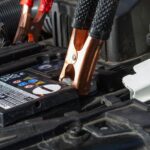With the Department for Business, Innovation and Skills (BIS) having recently launched its consultation into the regulations around how electronic goods producers fund the recycling of waste electrical and electronic equipment (WEEE), several leading electronics producers have called for widespread changes to be made to the “excessively costly” system for WEEE recycling compliance, reports Collect and Recycle (http://www.collectandrecycle.com).
It was concerns that the true cost of WEEE disposal was not reflected by the expense of complying with the present regulations that led to BIS launching its review. According to producers, the current producer responsibility system for WEEE is based on businesses finding it expensive to dispose of waste, and claim that since the regulations came into force, there has not been any change in the cost of compliance – despite an increase in commodity prices.
This has culminated in the release of a joint statement by Joint Trade Association (JTA) producer members, including Delonghi, Samsung, Candy, Toshiba, Hewlett Packard, Panasonic and Dell, expressing public support for proposed alterations to the system that are likely to make compliance less expensive. The JTA was established to lobby for changes to the present WEEE system.
Claiming that “there is no doubt that the UK system needs to change”, the producers added that the “need for change” was clearly set out by the government’s consultation and the linked impact assessment, which analyses the current system’s net costs and BIS’ proposed alternatives.
One of the most prominent critics of the current electrical waste recycling system is IT manufacturer Hewlett Packard, which published a report in January 2012 claiming that the existing regulations for compliance “exploited” producers. European waste policy advisor Mark Dempsey hailed the consultation as “a unique opportunity to deliver a UK WEEE system that works for everyone.” He added that the proposed changes would see the elimination of the trading of evidence between schemes, given the greater competition that it would produce.
Full support was also offered for changes to the present, “flawed” system by Toshiba, according to the firm’s environmental affairs manager Tom Nickson. He stated that “The government impact assessment shows that the current system inhibits competition and choice.”
Of four proposed options that BIS outlined for the future WEEE system in its consultation document, the JTA signified that it preferred the fourth one of matching collection sites to compliance schemes, given that it is already operating in various European countries. However, the JTA also said that it would support the third option – that of dispensing of the trading of WEEE evidence data between collection schemes in favour of setting compliance scheme targets, along with a ‘compliance fee’ in the event of these not being met.
Stakeholders have until June 21 to respond to the ongoing BIS consultation on the proposals. Meanwhile, those interested in recycling old computers and other electrical waste are welcome to do so cost-effectively, securely and entirely legally with Collect and Recycle (http://www.collectandrecycle.com).

